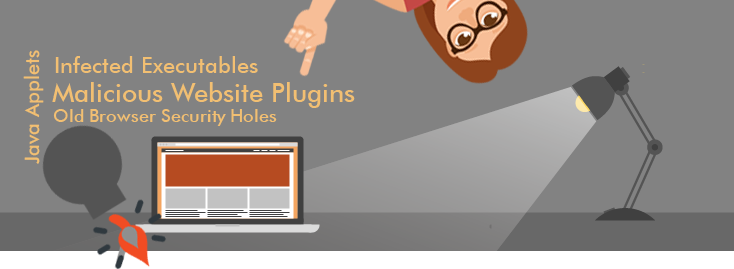
Hackers create viruses to run silent malicious programs in your computer’s background. The virus’ purpose is dependent on the hacker’s intent, but the result can be devastating. Some viruses corrupt data or delete files on your hard drive. Others send hackers private information, which leads to identity theft. You might not be able to identify a virus, but you can take steps to avoid having your computer infected.
Infected Executables
Executables are one of the main ways hackers gain access to your computer. Because executables can hide malicious programs, you should only run executables from software developers you are familiar with. Executables usually have the “EXE” file extension. A good sign that the executable is malicious is that it’s small and not the normal size of a regular program. For instance, if you’re expecting to run Microsoft Word, the executable is a few megabytes, but a virus posing as Microsoft Word is only a few kilobytes.
Malicious software can be stored on a malicious website where you download it from the creator, or you can download a pirated version of software infected with a virus from a torrent site. Avoid downloading pirated software, and only download official versions from the software developer’s website.
Malicious Website Plugins
Some websites are built intentionally to spread malware to random visitors. One way hackers install malicious software on your computer is tricking users into installing viruses in the form of plugins. For instance, a popular way hackers install plugins is creating a popup that tells the user the video can’t be viewed until a plugin is installed. When you click “Yes” in the popup, you allow the hacker to install malicious software on your computer.
Java Applets
Java is a popular application that runs on most computers. Although Java applets aren’t popular anymore, they are still useful for virus makers. The hacker creates a Java applet and embeds it on his web pages. When your browser accesses the pages, a popup opens asking you if you want to run the applet. Most users click “Yes” and allow Java to run the applet. If the web page contains malicious Java, the hacker is able to install a virus on your computer.
Old Browser Security Holes
Old Internet Explorer is a hacker’s paradise. The browser is well known as one of the most insecure browsers on the market, and plenty of users still run this browser on their computers. Old browsers have security holes that are never patched, because the browser is no longer supported by the software developer. The hacker takes advantage of these old browser issues and installs viruses on your computer. Internet Explorer 6 was known to allow keylogger or adware installation.
You don’t have to be paranoid to run an executable, but you should always download software that has some kind of reputation. If you want to install official software, use the official DVD disk or download it from the manufacturer. It’s tempting to download software from torrent sites, but these sites are one of the primary ways hackers infect computers. Additionally, don’t allow any rogue Java applets or plugins run on your computer unless you recognize the website.
